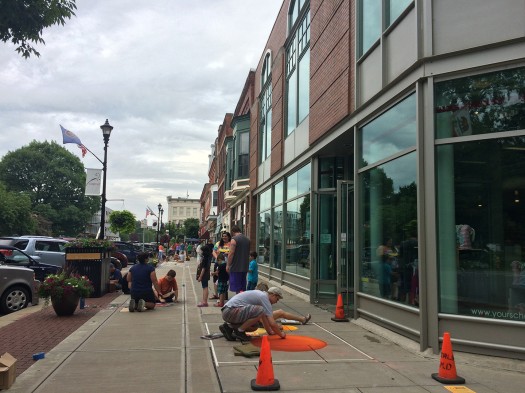Theory and Practice
Word Eating Time: Here’s today’s menu
Whatever skills I developed in manipulating language were shaped by two decades on the staffs of newspapers and magazines. In my first interview for a newspaper job, a managing editor lectured me on the transition I should be prepared for. I could forget all that fancy writing stuff I may have learned in college. I…
Read MoreCNU24 Detroit: Summary and celebration
You know how the sweet spot for blogs is 500 words? Well, this isn’t one of those. It’s the geek’s guide to the 24th Congress for the New Urbanism in Detroit. Feeling grateful for the food for thought, and wanting to keep the ideas fresh. This blog compiles city planning tweets from June 8 through…
Read MoreEquity, Engagement, Community: Empathy ain’t enough
So you’ve finally aligned the stars to get something important done in your community. Maybe it’s a corridor plan that nods to the needs of pedestrians, bikers and transit riders, as well as car drivers. Maybe it’s an ambitious mixed-use master plan for your downtown. Or a revamped zoning code to enable the development and…
Read MoreLean Code Tool
We believe form-based codes are the most efficient, predictable, and elegant way to assure high levels of walkability and urbanism – even in more rural environments. However, the political and staff capacity of many local governments is not prepared for a full zoning reform effort. CNU is developing an agenda of incremental code reform that…
Read MoreMoonshine, Basketball, and the Power of Place
Every day, social media serves up a seemingly endless stream of content. Raw information, with each item typically reflecting the priorities of its respective poster. If you’ve assembled good curators among your friends and contacts, it adds up to a lot of interesting stuff. But the real interest, at least for me, is when you…
Read MoreIt’s the Complexity, Stupid! (Try ‘splainin’ that in an elevator)
I’m writing this as Wisconsin voters appear poised, if we’re to believe the hyperventilating pundits, to push the reset button on the 2016 presidential primary season. All bets are off from here on. Not the smart money, though. That’s because the presidential campaign is likely to play out within boundaries shaped by what we voters…
Read MoreThe Next Frontier for Compact Walkability? It’s gotta be the burbs
This weekend in Miami, the Congress for the New Urbanism is staging one of the periodic Councils it uses to focus perspectives and best practices on topics of growing concern to CNU members and fellow travelers. This one is all about building “a Better Burb.” The idea, says CNU CEO Lynn Richards, is “to leverage…
Read More
Smart Design = Smart Policy:
Eezy-Peezy? Not so fast
See if this sounds familiar: The city planning staff, maybe working with an expert team of design consultants, comes up with what they think is a no-brainer solution to a high-profile problem. Say, a proposal for much-needed multifamily development to address workforce housing demand. Or a plan to fix a blighted block with a mixed-use…
Read MoreFix Housing Supply, Save the City: Is it really that easy?
Planning wonks might have felt all warm inside when they noticed zoning topics wedging their way into broader conversations about community affordability and equity. Bring it on. Finally.
Read MoreTop 10 Techniques for Educating Community Leaders about Placemaking
Extraordinary strides have been made in the advancement of placemaking over the past twenty-five years. Think about it. In the years prior, the term “placemaking” wasn’t even in common use by developers, designers and planners. Nor were terms such as form-based code, new urbanism, smart growth, transect, charrette, visual preference survey, traditional neighborhood development, transit-oriented…
Read More


